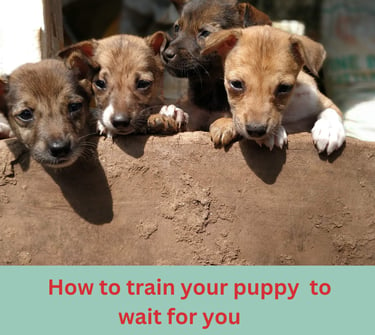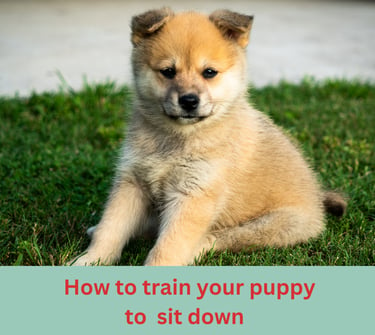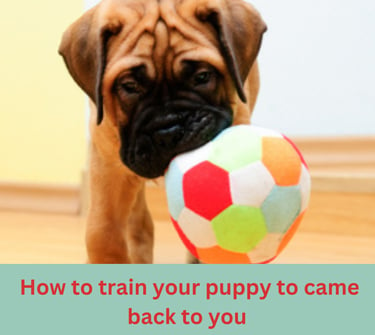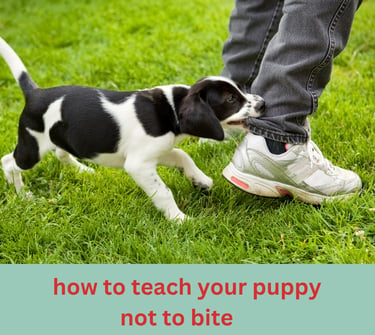Understanding Puppy Development Stages
As a responsible dog owner, it's essential to understand how your puppy learns to ensure they grow into a well-behaved stepby step guide ....


Understanding Puppy Development Stages: A Step-by-Step Guide
As a responsible dog owner, it's essential to understand how your puppy learns and develops to ensure they grow into a well-behaved and well-adjusted adult dog.
Puppies go through various stages of development, and knowing what to expect during each stage can help you provide the best possible care and training. In this article, we'll take you through the different stages of puppy development, from birth to adulthood.
Stage 1: Neonatal (0-2 weeks)
The neonatal stage is the first stage of puppy development, and it lasts from birth to around 2 weeks old. During this stage, puppies are completely dependent on their mother for warmth, nutrition, and protection. Their eyes and ears are closed, and they spend most of their time sleeping and nursing.
At birth, puppies are blind, deaf, and helpless. They rely on their sense of smell and touch to navigate their surroundings. As they grow, they begin to develop their motor skills, such as crawling and wriggling.
By around 1 week old, puppies start to open their eyes, but their vision is still blurry. They also start to develop their sense of hearing, but it's not until around 2 weeks old that they can fully hear.
Stage 2: Transitional (2-4 weeks)
The transitional stage occurs between 2-4 weeks old. During this stage, puppies start to open their eyes and ears, and they begin to explore their surroundings. They also start to transition from their mother's milk to solid food. This is an essential stage, as puppies learn important social skills from their littermates and mother.
As puppies start to explore their surroundings, they begin to develop their sense of curiosity. They start to crawl, walk, and play, and they begin to interact with their littermates. This stage is critical for socialization, as puppies learn important skills, such as communication, boundaries, and emotional regulation.
Stage 3: Socialization (4-12 weeks)
The socialization stage is a critical period in puppy development, and it lasts from around 4-12 weeks old. During this stage, puppies learn how to interact with their environment, people, and other animals.
They develop essential social skills, such as communication, boundaries, and emotional regulation. This stage is vital for helping puppies develop good behavior and preventing behavioral problems later in life.
Socialization is a critical component of puppy development, and it's essential to expose puppies to a variety of experiences, people, and environments. This includes:
* Meeting new people, including men, women, and children
* Interacting with other animals, including dogs and cats
* Exploring new environments, such as parks, stores, and homes
* Experiencing new sights, sounds, and smells
By socializing your puppy, you can help them develop good behavior and prevent behavioral problems, such as fear aggression and anxiety.
Stage 4: Fear Imprint (8-11 weeks)
The fear imprint stage occurs between 8-11 weeks old. During this stage, puppies may develop fears or phobias that can last a lifetime. It's essential to handle puppies gently and carefully during this stage to avoid creating any negative associations.
The fear imprint stage is a critical period, and it's essential to be mindful of your puppy's experiences. Avoid exposing your puppy to scary or traumatic experiences, and ensure that they have positive interactions with people and environments.
Stage 5: Juvenile (12-18 weeks)
The juvenile stage occurs between 12-18 weeks old. During this stage, puppies continue to develop their social skills and learn important behaviors, such as bite inhibition and impulse control. They also start to test boundaries and assert their independence.
As puppies enter the juvenile stage, they may start to exhibit behaviors, such as:
* Chewing and destroying objects
* Barking and whining
* Testing boundaries and pushing limits
It's essential to provide puppies with plenty of exercise, training, and socialization during this stage. This includes:
* Providing plenty of physical activity, such as walks and playtime
* Engaging in training sessions, such as obedience and agility
* Socializing puppies with people, animals, and environments
Stage 6: Adolescence (6-12 months)
The adolescence stage occurs between 6-12 months old. During this stage, puppies go through significant physical and emotional changes. They may exhibit behaviors, such as:
* Chewing and destroying objects
* Digging and escaping
* Barking and whining
It's essential to be patient and consistent during this stage, as puppies may test boundaries and push limits. Providing plenty of exercise, training, and socialization can help alleviate behavioral problems and ensure that your puppy develops into a well-adjusted adult dog.
Stage 7: Adulthood (1-2 years)
The adulthood stage occurs between 1-2 years old. During this stage, dogs reach physical maturity and continue to develop emotionally. They may still require training and socialization, but they are generally more settled and less energetic than puppies.
As dogs enter adulthood, they may exhibit behaviors, such as:
* Settling into a routine
* Becoming more independent
* Developing strong bonds with their owners
It's essential to continue providing training, socialization, and exercise during this stage, as adult dogs still require mental and physical stimulation.
Tips for Raising a Well-Behaved Puppy
1. Provide proper socialization: Socialization is critical for helping puppies develop good behavior and preventing behavioral problems later in life.
2. Train early and often: Training should start as early as possible, and it should be consistent and positive.
3. Be patient: Raising a puppy requires patience, as they can be energetic and destructive at times.
4. Provide adequate exercise: Puppies need plenty of exercise to stay healthy and happy.
5. Monitor development: Keep an eye on your puppy's development, and seek professional help if you notice any signs of behavioral problems.
Common Behavioral Problems
1. Separation anxiety: Separation anxiety is a common behavioral problem in puppies, and it can be caused by a lack of socialization and training.
2. Fear aggression: Fear aggression is a common behavioral problem in puppies, and it can be caused by a lack of socialization and exposure to new experiences.
3. Chewing and destroying objects: Chewing and destroying objects is a common behavioral problem in puppies, and it can be caused by a lack of exercise and mental stimulation.
Conclusion
Understanding puppy development stages is essential for raising a well-behaved and well-adjusted adult dog. By knowing what to expect during each stage, you can provide the best possible care and training for your puppy. Remember to be patient, provide proper socialization, train early and often, and monitor your puppy's development. With time, effort, and patience, you can help your puppy grow into a happy and healthy adult dog.















